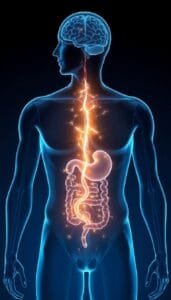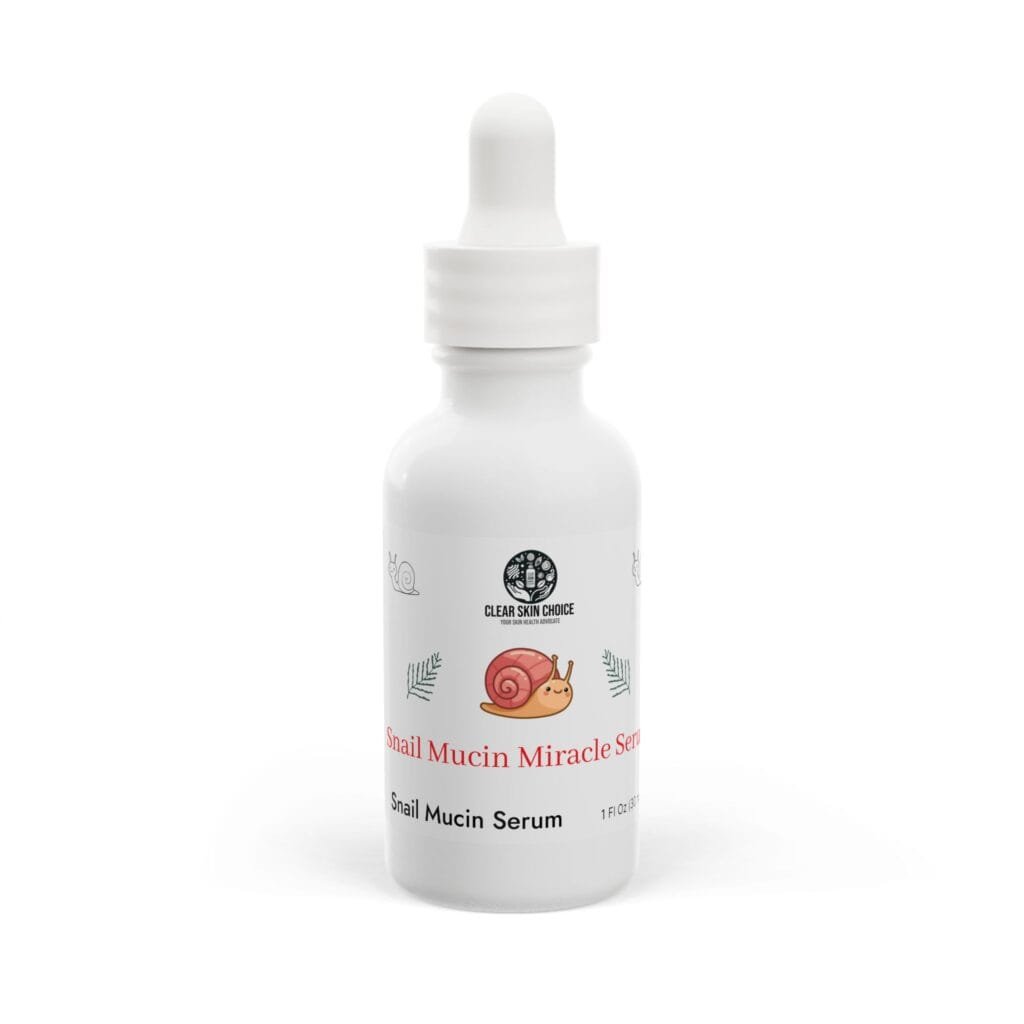Introduction to Healthy Gut Healthy You Natural Therapies for IBS
Natural Therapies for IBS Strengthen the Gut-Skin Axis
Healthy Gut Healthy You is an essential aspect of overall well-being, serving as a pivotal foundation for mental and physical health through natural therapies for IBS. The gut, or gastrointestinal tract, plays a multifaceted role, extending beyond digestion and nutrient absorption. It comprises various organs that work harmoniously to process food and eliminate waste, but its significance transcends mere physiological functions. Recent research underscores the importance of a healthy gut microbiome comprising trillions of microorganisms and is crucial in maintaining gut health.
The relationship between gut health and the microbiome is intricate, as these microorganisms influence numerous bodily processes. A balanced microbiome supports digestion, synthesizes vitamins, and protects against pathogens. However, an imbalance—often referred to as dysbiosis—can lead to gut health issues such as inflammatory bowel diseases, irritable bowel syndrome, and other gastrointestinal disorders. Emerging evidence suggests that the gut microbiome may also affect mental health, demonstrating a clear connection between gut health and psychological well-being.
This intersection of gut health and mental health introduces the concept of natural gut health therapy. By leveraging dietary interventions, probiotics, and lifestyle changes, individuals can nurture their gut microbiome, potentially alleviating gut health issues and improving mental health. For instance, incorporating fiber-rich foods, fermented products, and prebiotics can enhance microbial diversity and support gut function. As awareness of the gut-brain axis grows, researchers continue to explore the complexities of how gut health influences mood, cognitive function, and emotional resilience.
Understanding gut health is, therefore, vital for addressing digestive concerns and fostering a holistic approach to health. By recognizing the gut’s broad impact, individuals can prioritize their gut health, ultimately leading to better mental and physical well-being.
Common Gut Health Issues
Gut health is a critical aspect of overall well-being, and various digestive disorders can significantly impact both physical and mental health. One of the most prevalent conditions is Irritable Bowel Syndrome (IBS), characterized by symptoms such as abdominal pain, bloating, and altered bowel habits. Individuals with IBS often experience these symptoms intermittently, which can lead to anxiety and stress due to the unpredictability of flare-ups.
Another condition is leaky gut syndrome, where the intestinal barrier becomes compromised, allowing harmful substances to enter the bloodstream. This can result in systemic inflammation and a variety of health issues, including food sensitivities, skin issues, and autoimmune disorders. Symptoms of leaky gut may include fatigue, digestive discomfort, and even mood swings, linking gut health issues to mental well-being.
Dysbiosis, characterized by an imbalance in gut microbiota, also poses significant health risks. This condition can result from an unhealthy diet, antibiotics use, and other lifestyle factors. Symptoms often include gastrointestinal distress, such as diarrhea or constipation, alongside less obvious effects like fatigue, brain fog, and mood disturbances. Research indicates that gut microbiota play a vital role in regulating mood and behavior, suggesting that dysbiosis could contribute to conditions such as anxiety and depression.
Other digestive disorders, including celiac disease and inflammatory bowel diseases (IBD) like Crohn’s and ulcerative colitis, further illustrate the intricate relationship between gut health and overall health. These conditions can lead to severe physical symptoms—malnutrition, severe pain, and fatigue—while also escalating psychological distress. Addressing these gut health issues through therapies focused on restoring gut balance can have profound effects on both physical stability and mental resilience, underscoring the importance of understanding and maintaining natural gut health therapy.
The Gut-Brain Connection
The gut-brain connection is an intricate relationship that significantly impacts both mental and physical health. This connection operates through a complex signaling pathway known as the gut-brain axis, wherein the gut microbiota and the brain communicate through biochemical signals. When we talk about gut health issues, it is essential to recognize that the microorganisms residing in our intestines play a pivotal role in regulating neurotransmitter production, which influences mood and emotional well-being. For instance, approximately 90% of serotonin, a key neurotransmitter associated with feelings of happiness and well-being, is produced in the gut. Thus, a healthy gut microbiome is crucial for optimal mental health.
Research has increasingly shown that an imbalance in gut microbiota, often termed dysbiosis, can lead to various gut health issues and has been linked to conditions such as anxiety, depression, and even neurodegenerative disorders. This occurs through several mechanisms. For example, certain gut bacteria have been shown to produce short-chain fatty acids, which possess anti-inflammatory properties and may influence brain function. Furthermore, the gut microbiome can affect the production of stress hormones and inflammatory markers, which can subsequently have an emotional impact on the brain.
Conversely, mental health conditions can also affect gut health. Stress and anxiety can lead to gastrointestinal disturbances, including irritable bowel syndrome (IBS) and other functional gut disorders. This cyclical nature of the gut-brain connection underscores the necessity of holistic approaches to health. Natural gut health therapy, which encompasses dietary interventions, probiotics, and other lifestyle changes, can greatly benefit both gut and mental health. By focusing on improving gut microbiota composition, individuals may experience more significant improvements in mood and a reduction in gut-related health issues.
Impact of Stress on Gut Health
Stress has become an integral part of modern life, and its effects can be profoundly detrimental to both mental and physical well-being. One of the areas most affected by stress is gut health. Studies have shown a strong correlation between chronic stress and various gut health issues, including irritable bowel syndrome (IBS), inflammation, and changes in gut microbiota composition. The mechanisms underlying these changes are multifaceted and involve hormonal as well as neurochemical pathways.
When an individual experiences stress, the body responds by activating the hypothalamic-pituitary-adrenal (HPA) axis, leading to the release of cortisol and other stress hormones. Elevated cortisol levels can influence gut motility and increase intestinal permeability, often referred to as “leaky gut.” This permeability allows toxins and bacteria to enter the bloodstream, which can trigger inflammatory responses and exacerbate existing gut health issues. Furthermore, stress can alter the balance of beneficial and harmful bacteria in the gut microbiome, further complicating the situation.
Moreover, stress can also disrupt essential physiological functions including digestion and nutrient absorption. When the body is in a heightened state of stress, it diverts resources away from non-essential functions like digestion, which can lead to symptoms such as bloating, constipation, and abdominal pain. Consequently, it becomes evident that managing stress is vital for maintaining natural gut health. Techniques such as mindfulness, yoga, and regular physical exercise can be beneficial. These activities not only mitigate stress levels but also contribute positively to gut flora diversity, thus supporting overall gut health. Incorporating such practices into daily routines can effectively serve as a natural gut health therapy, promoting balance and resilience in one’s physical and mental state.
Natural Therapies for Gut Health
Maintaining optimal gut health is crucial for overall well-being and can be supported through various natural therapies. One of the most fundamental approaches is adopting a balanced diet that emphasizes fiber-rich foods. These foods not only aid digestion but also promote the growth of beneficial gut bacteria, which is essential for maintaining a healthy microbiome. Including whole grains, legumes, fruits, and vegetables in your daily meals can significantly enhance digestive function and help mitigate gut health issues.
In addition to fiber, the incorporation of probiotics into your diet proves beneficial as well. Probiotics are live microorganisms that provide health benefits when consumed in adequate amounts. They contribute to gut health by restoring the natural balance of gut flora, especially after disturbances caused by antibiotics or poor dietary choices. Fermented foods such as yogurt, kefir, sauerkraut, and kimchi are excellent sources of probiotics. These foods not only enhance your gut health but also improve your immune response and overall resilience against pathogens.
Moreover, it is vital to consider the impact of lifestyle factors on gut health. Stress management techniques, such as mindfulness, yoga, and adequate sleep, can also create favorable conditions for bacterial growth in the gut. Ensuring proper hydration is another key aspect of maintaining gut health, as water facilitates digestion and aids in the transport of nutrients.
Integrating these natural gut health therapies into daily routines can help in the prevention of many gut health issues and contribute to better physical and mental well-being. By focusing on a diet rich in fiber and probiotics, along with lifestyle adjustments, individuals can cultivate a healthier gut microbiome and enhance their overall quality of life. In conclusion, embracing these holistic practices is a proactive step toward promoting natural gut health therapy.
Essential Supplements for Gut Health
Maintaining optimal gut health is crucial for overall well-being, and various supplements can play a significant role in achieving this balance. Among these, probiotics are perhaps the most well-known. Probiotics are live microorganisms that, when consumed in adequate amounts, confer health benefits to the host, primarily by improving gut microbial balance. By restoring the natural gut flora, probiotics can mitigate gut health issues such as bloating, diarrhea, and irritable bowel syndrome, enhancing both physical and mental health.
Prebiotics, which serve as food for these beneficial bacteria, are another vital supplement for gut health. They enhance digestive function by promoting the growth of healthy bacteria in the gut. Common sources of prebiotics include fibers like inulin and fructooligosaccharides, which can be found in foods such as garlic, onions, and bananas, as well as in supplement form. Individuals experiencing gut health issues may find that incorporating prebiotics into their regimen improves digestion and boosts immune function.
Amino acids also contribute significantly to gut health, as they are the building blocks of proteins. Certain amino acids, such as glutamine, support the integrity of the intestinal lining, thus preventing leaky gut syndrome. This condition can lead to a cascade of gut health issues and may also impact mental well-being. Furthermore, digestive enzymes play a crucial role in breaking down nutrients during digestion. Supplements containing these enzymes can assist those with digestive disorders or enzyme deficiencies in absorbing essential nutrients effectively.
When considering which supplements to incorporate into a health regimen, it is essential to evaluate individual needs and consult a healthcare professional. They can offer personalized advice based on specific gut health issues, guiding one towards the appropriate choice of probiotics, prebiotics, amino acids, or digestive enzymes. The right combination can make a significant difference in promoting natural gut health therapy and enhancing overall well-being.
Botanicals and Herbs for Gut Health
Maintaining optimal gut health is essential for overall well-being. Various botanicals and herbs have been recognized for their beneficial effects on gut health issues, making them valuable components in natural gut health therapy. Among these, ginger, peppermint, and turmeric are particularly noteworthy for their therapeutic properties.
Ginger, a widely used herb in traditional medicine, possesses strong anti-inflammatory and antioxidant properties. Research suggests that ginger can help alleviate gastrointestinal discomfort, stimulate digestion, and reduce nausea. Incorporating ginger into daily routines can be as simple as adding fresh ginger to smoothies or brewing ginger tea. These practices not only enhance flavor but also support gut health optimization.
Peppermint is another herb revered for its positive impact on gut function. The menthol in peppermint is known for its ability to soothe the muscles of the gastrointestinal tract, which can aid in reducing symptoms related to irritable bowel syndrome (IBS) and other gut health issues. Peppermint tea is a popular choice, providing a refreshing beverage while promoting relaxation and digestive comfort. Additionally, peppermint oil capsules are available for those seeking a more concentrated dose of this beneficial herb.
Turmeric, distinguished by its vibrant yellow color, has gained recognition for its potent anti-inflammatory properties, primarily due to the compound curcumin. This herb has been shown to support gut health by promoting a balanced microbiome, which is vital for optimal digestive function. Turmeric can be easily incorporated into diet through golden milk, curries, or as a supplement, providing an effective and flavorful way to enhance gut health naturally.
Incorporating these herbs into your daily routine can contribute to an overall therapeutic approach to natural gut health therapy, addressing a variety of gut health issues and enhancing well-being. The use of botanicals and herbs offers a holistic method to support your digestive health, making them invaluable allies in your journey toward achieving better gut health.
Lifestyle Changes for Better Gut Health
Improving gut health is a multi-faceted process that requires commitment to several lifestyle changes. One of the most impactful modifications is incorporating regular exercise into your routine. Physical activity aids digestion by promoting intestinal movement and reducing the risk of gut health issues. Aim for at least 150 minutes of moderate aerobic exercise each week, such as brisk walking, cycling, or swimming. This not only benefits the gut but also enhances overall physical and mental well-being.
Another critical factor is ensuring adequate sleep. Quality sleep is essential for maintaining a balanced microbiome, which plays a vital role in natural gut health therapy. Establishing a consistent sleep schedule, creating a relaxing bedtime routine, and minimizing screen time before bed can significantly improve sleep quality. Adults typically require 7-9 hours of uninterrupted sleep each night to support optimal gut function and overall health.
Hydration is equally important for gut health. Drinking sufficient water helps maintain the mucosal lining of the intestines, improving digestion and the absorption of nutrients. Aim to consume at least 8-10 cups of fluids per day, adjusting for factors like climate and physical activity levels. Additionally, incorporating foods rich in prebiotics and probiotics, such as yogurt, kefir, and fermented vegetables, can strengthen gut flora and address common gut health issues.
Mindful eating practices also support digestive health. Taking the time to chew food thoroughly and savor flavors allows for better digestion and promotes a positive relationship with food. Some techniques include eating without distractions, paying attention to hunger cues, and resisting the urge to overeat. These practices not only help alleviate gut health issues but also foster a more enjoyable eating experience.
By implementing these lifestyle changes—regular exercise, adequate sleep, proper hydration, and mindful eating—individuals can significantly enhance their gut health and overall well-being.
Conclusion: Embracing a Holistic Approach to Gut Health
In recognition of the intricate relationship between gut health and overall well-being, it is essential to embrace a holistic approach towards understanding and addressing gut health issues. The gut, often referred to as the “second brain,” plays a crucial role not only in digestion but also in influencing neurological functions, mood, and immunity. As such, prioritizing natural gut health therapy can serve as a vital step in the pursuit of optimal mental and physical health.
Actively managing gut health requires a comprehensive understanding of individual conditions and lifestyle factors. Many individuals experience a range of gut health issues that could manifest through symptoms such as bloating, fatigue, or irritability. By recognizing these symptoms as potential indicators of underlying problems, individuals can seek targeted natural gut health therapy options that may include dietary changes, probiotics, prebiotics, and mindful eating practices that promote digestive wellness. Emphasizing nourishing foods rich in fiber, fermented products, and maintaining hydration can significantly enhance gut function and foster a balanced microbiome.
Furthermore, gut health is intrinsically linked to mental well-being. Research has shown that a healthy gut microbiome can positively influence mood and cognitive functions, helping to mitigate anxiety and depression. Therefore, addressing gut health through a natural, integrative process not only supports digestive health but also provides substantial benefits for emotional stability and cognitive clarity.
To conclude, understanding gut health extends far beyond the digestive system; it encompasses a plethora of physiological and psychological dimensions. By adopting a proactive stance towards maintaining gut health through natural, therapeutic interventions, individuals can enhance their overall health. This commitment to nurturing gut health fosters a balanced life, paving the way for improved well-being in both body and mind.








